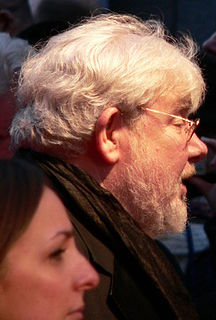A Quote by Aldrich Ames
By the late '70s I had come to question the point of a great deal of what we were doing, in terms of the CIA's overall charter.
Related Quotes
When I was a kid, a lot of my parents' friends were in the music business. In the late '60s and early '70s - all the way through the '70s, actually - a lot of the bands that were around had kids at a very young age. So they were all working on that concept way early on. And I figured if they can do it, I could do it, too.
It's a sad indication of where Washington has come, where policy differences almost necessarily become questions of integrity. I came to Washington in the late '70s, and people had the ability in the past to have intense policy differences but didn't feel the need to question the other person's character.
Magna Carta only came into being in 1217, when the wording had been changed and parts of the original were extended in the Charter of the Forests. This complementary charter covered liberties granted to the common man, including rights to the commons, grazing, fishing, water, and firewood, and was perhaps the first ecological charter in history.
I feel almost as if I had been born in a vacuum of innocence, and then had to come to terms with the fact that actually, I was born into the middle of history - the rather grimy normality of the 70s, which did, indeed, retain some traces of human innocence, but were also girded about by the demons of experience.
My CIA colleagues were smart, dedicated, funny, and creative. Yes, there was sometimes stifling bureaucracy, boredom, colleagues who never should have been there, and later, deeply disturbing stories of the CIA's involvement in torture. Still, I got to do work I thought was incredibly important and, many times, had fun doing it.
What is the meaning of life? That was all- a simple question; one that tended to close in on one with years, the great revelation had never come. The great revelation perhaps never did come. Instead, there were little daily miracles, illuminations, matches struck unexpectedly in the dark; here was one.
Everything the CIA does is deniable. It's part of its Congressional mandate. Congress doesn't want to be held accountable for the criminal things the CIA does. The only time something the CIA does become public knowledge - other than the rare accident or whistleblower - is when Congress or the President think it's helpful for psychological warfare reasons to let the American people know the CIA is doing it.
































